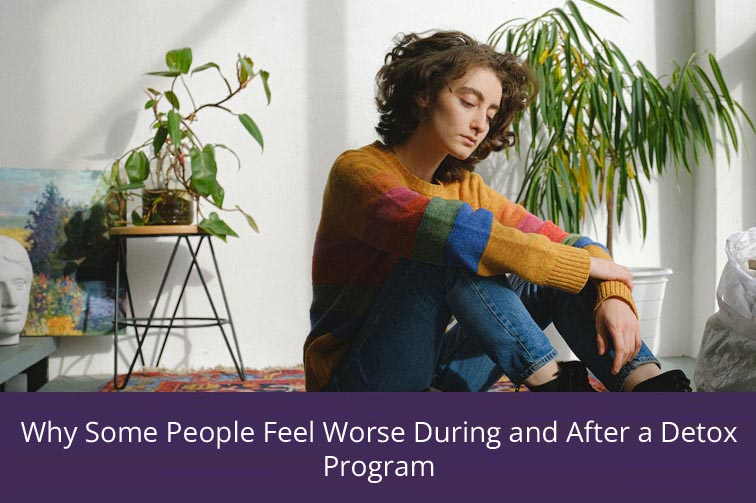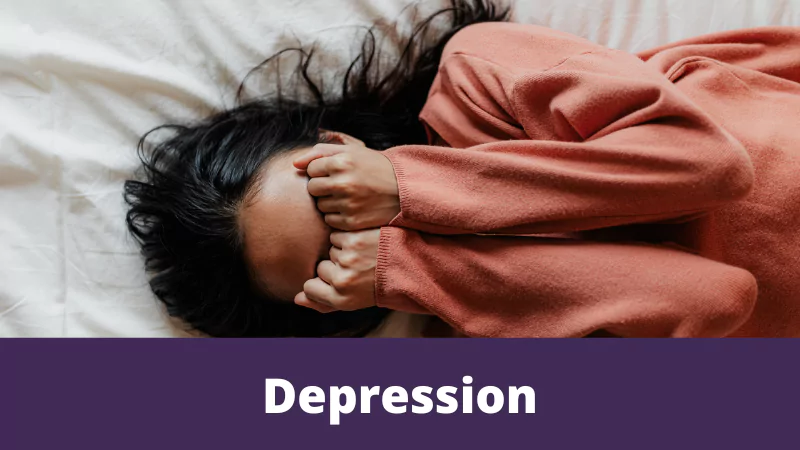Welcome to our health and wellness blog! Today, we’re tackling a topic that puzzles many health enthusiasts – why do some individuals feel worse during and even after a detox program? Detox programs are designed to help the body rid itself of toxins, but paradoxically, they can sometimes lead to unpleasant symptoms. Let’s dive into the reasons behind this counterintuitive phenomenon.
The Detox Paradox
Detoxification, often perceived as a direct route to improved health, can sometimes take a detour through discomfort. Understanding why this happens requires a closer look at the body’s detoxification processes and how individual differences play a role.
1. Toxin Release and Reabsorption
When you start a detox, toxins stored in fat cells and other tissues begin to release into the bloodstream. This is an essential step in eliminating them from your body. However, this release can temporarily increase the concentration of toxins, leading to symptoms like headaches, fatigue, or nausea – a process akin to feeling worse before you feel better.
If you push the release of toxins too fast it may cause more harm than good.
This is especially true if you have liver enzymes that are slow due to a build up toxins from unhealthy lifestyle habits or because they are genetically slow
Find out more about how your genes effect your detoxification here
2. Nutrient Deficiencies and Dietary Changes
Many detox diets are highly restrictive and can inadvertently lead to nutrient deficiencies. When your body doesn’t get adequate nutrition, you might experience symptoms like weakness, dizziness, and cognitive difficulties. It’s crucial to ensure that your detox plan is nutritionally balanced.
That’s why it’s imperative you follow a detox program that is designed by a qualified nutritionist or naturopath who is specifically trained in what nutrients are required to support proper detox.
3. Hydration and Electrolyte Imbalance
Detox programs often increase urination or perspiration, both methods of eliminating toxins. This can result in dehydration and electrolyte imbalances if not carefully managed. Staying hydrated and maintaining electrolyte balance is key to avoiding symptoms like muscle cramps, brain fog, headaches and low energy.
In our detoxification program we share specific strategies to ensure your electrolyte balance stays optimal so that you can avoid or dramatically reduce these symptoms
4. Digestive Upheaval
Changes in diet, especially those involving a significant increase in fiber or the elimination of certain food groups, can disrupt your digestive system. This might manifest as bloating, gas, or changes in bowel habits.
A good detox program should ALWAYS support the gut and healthy bowel movements.
5. Stress and Hormonal Changes
Detoxing can be a physically and emotionally stressful experience, especially if you are getting bad side effects. This stress can trigger hormonal responses, leading to symptoms like anxiety, irritability, or sleep disturbances.
6. Withdrawal Effects
If your detox involves cutting out substances like caffeine or sugar, you might experience withdrawal symptoms. These can range from headaches and irritability to intense cravings.
Your detox program needs to provide you with strategies to support cravings and withdrawal symptoms so you don’t feel miserable or give up on your program!
7. Pre-existing Health Conditions
Individuals with certain health conditions may find that a detox exacerbates their symptoms. This is especially true for those with chronic diseases or metabolic disorders.
If you have a chronic health condition, make sure you double check with your practitioner that the program you are thinking about is right for you.
Also look for a program that is specifically designed with chronic sensitivities or illnesses in mind (like ours!)
Navigating the Detox Journey
While mild symptoms can be a normal part of detox, severe or prolonged symptoms are not. Here are some tips to navigate a detox program more comfortably:
- Hydration is Key: Drink plenty of water and replenish electrolytes as needed.
- Balanced Diet: Ensure your detox plan includes all essential nutrients and DO NOT overly restrict your food intake
- Gradual Changes: Ease into dietary changes to give your body time to adjust. Start slowly with any supplements and slowly work up to the full recommended dose.
- Adjust if needed: if you react to a detox supplement, keep reducing the dose by half until you can tolerate it
- Listen to Your Body: Pay attention to how your body reacts and adjust accordingly.
Conclusion
Having some small symptoms during a detox can be a normal part of the process for some, so it’s important to approach detoxification with awareness and care. But any big adverse symptoms, especially those that make your daily life harder are NOT supposed to happen.
Remember, a detox should be about supporting and nurturing your body, not overwhelming it. As always, personalization and professional guidance are your allies in achieving a safe and effective detox experience.
Over the years we have helped hundreds of people to detoxify, even when they have tried and failed before.
Because our program works WITH your genetics and supports very specific enzymes in the body that can trigger detox reactions, we are able to have tremendous success when other programs have not been able to. Find out more here
Note: you don’t have to know all of your genes in order to do this program.









